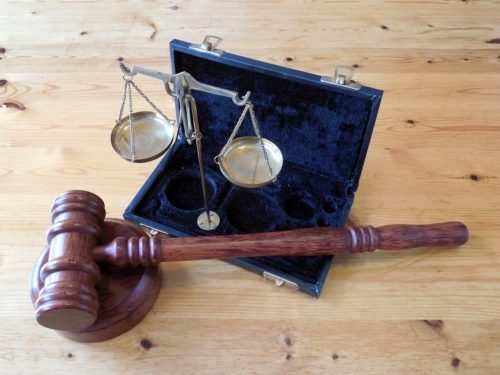HIV-positive man convicted of sex assault granted new trial
TORONTO — An HIV-positive man convicted of sexual assault has been granted a new trial after Ontario’s top court ruled that the conduct of a juror who discussed the case on the radio created a reasonable apprehension of bias.
JD was convicted of three counts of sexual assault and two counts of forcible confinement in September 2013. The charges stemmed from complaints filed by four males he met at a bathhouse in Toronto. He was acquitted of a fourth sexual assault charge.
In his appeal, JD argued that the fairness or appearance of fairness of his trial was undermined by the conduct of the jury foreperson, who participated in radio broadcasts discussing the trial.
The juror was a producer of a radio program called “The Dean Blundell Show” — a so-called “shock jock” show on Toronto’s 102.1 The Edge where opinions were expressed in a deliberately provocative way. The show was cancelled in January 2014.
Justice Mary Lou Benotto at Ontario’s Court of Appeal found that in an on-air conversation during the trial, the juror made derogatory comments about sexual activity between men and mocked the juror’s oath. The juror also appeared on the show after the trial ended and more “derisive comments” were made about the lifestyle of the trial participants.
Benotto found that the juror ignored the trial judge’s instructions not to discuss the case or deliberations, “publicly demeaned and ridiculed” JD and the complainants, condemned their lifestyle and sexual practices and demonstrated a lack of respect for the justice system.
“Such comments have no place in a fair and impartial justice system. The reasonable observer would expect that a person who comes before the courts would be treated with dignity and respect and not be publicly ridiculed by the person judging him,” she wrote in a detailed ruling released on Monday.
“I conclude that a reasonable person, knowing all the facts, would apprehend that consciously or unconsciously it was more likely than not that this juror would not decide fairly.”
Benotto noted that the juror “expressed disgust” at the behaviour and lifestyles of JD and the trial complainants, “particularly their sexual practices, drug use, and promiscuity.”
At one point, the juror impersonated JD on a pretend phone call with his mother talking about being sentenced to a lengthy prison term and mockingly said “I finally got a steady job, yay. I’m going straight to the showers.” He also agreed with one of the show hosts who said a prison sentence would be “like a cruise” for JD, Benotto wrote.
The juror also talked about deliberations, revealing that the jury had to determine issues regarding JD’ HIV disclosure and whether trial witnesses were credible “because they were boneheads,” Benotto wrote.
Parliament has made it an offence for any juror to reveal anything about what happens in the jury room even after the trial is over.
The Crown took the position that there was no bias in the case and argued that a reasonable observer would know not to take “shock jock” radio seriously.
But Benotto disagreed.
“He was part of the show and part of the jokes. He hinted at the content of the trial and spurred on the hosts even before the trial was over,” she wrote. “He created the impression that — far from taking his role seriously — the trial was a source of material for his and the public’s obscene entertainment. ”
While a second judge agreed with Benotto’s decision, a third judge on the panel believed the juror’s conduct was not what caused a new trial to be required.
Justice David Doherty found that while the juror’s remarks about the complainants were “inappropriate and potentially hurtful,” it was an error the trial judge made in instructions to the jury that necessitated a fresh trial.




